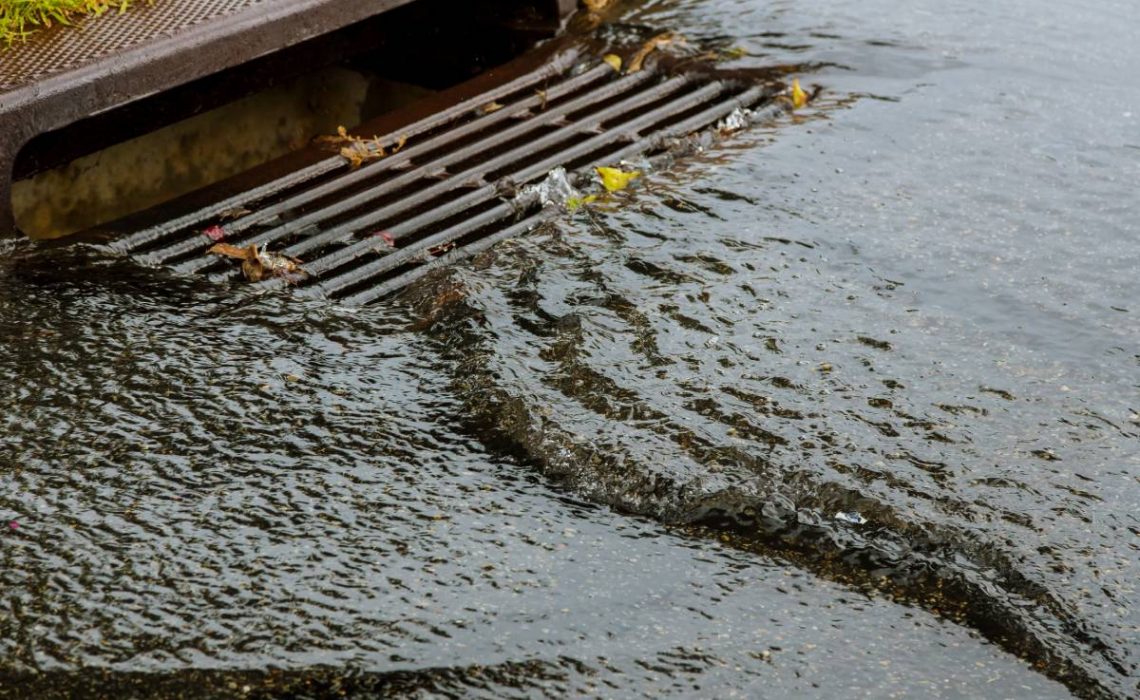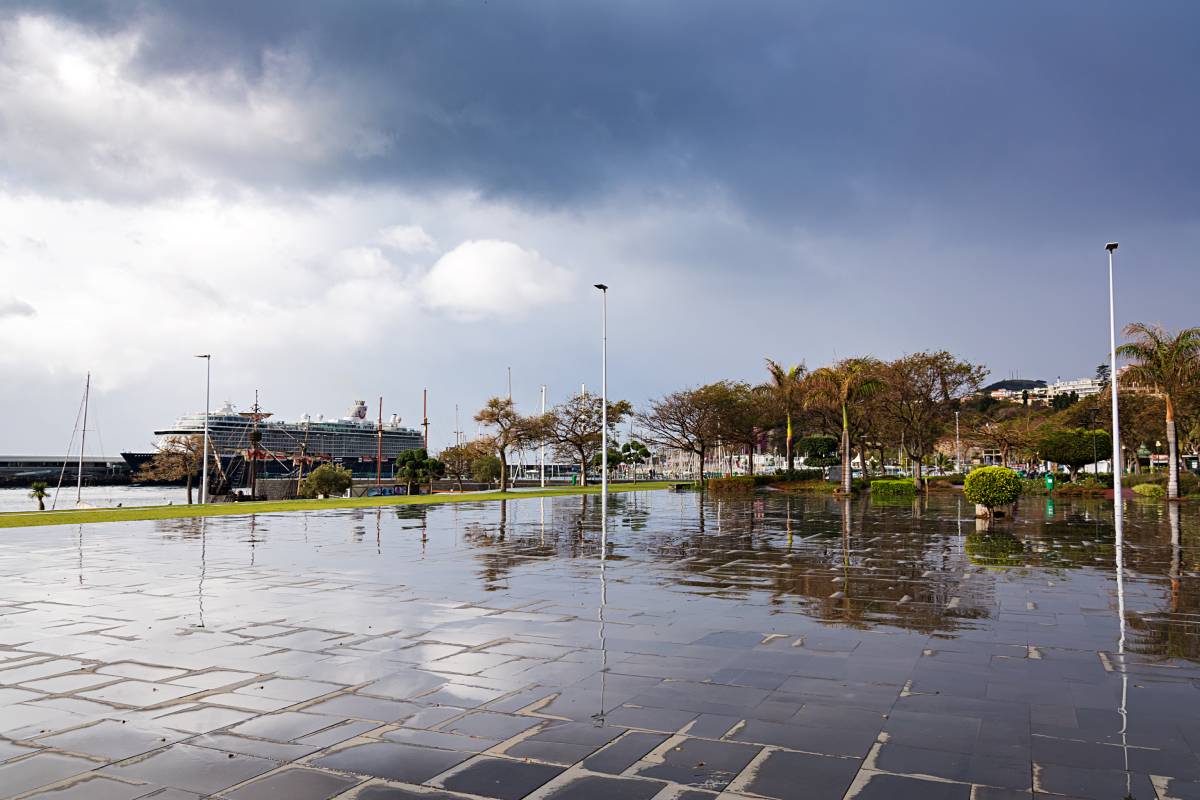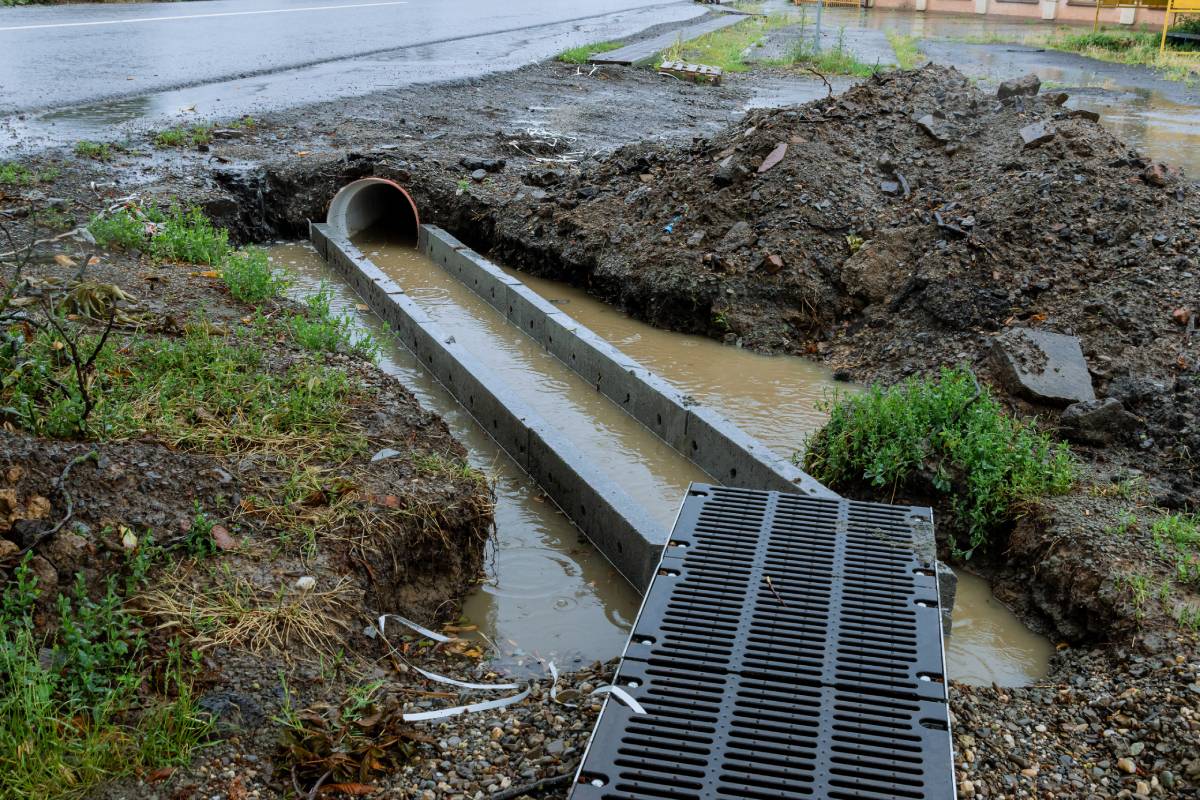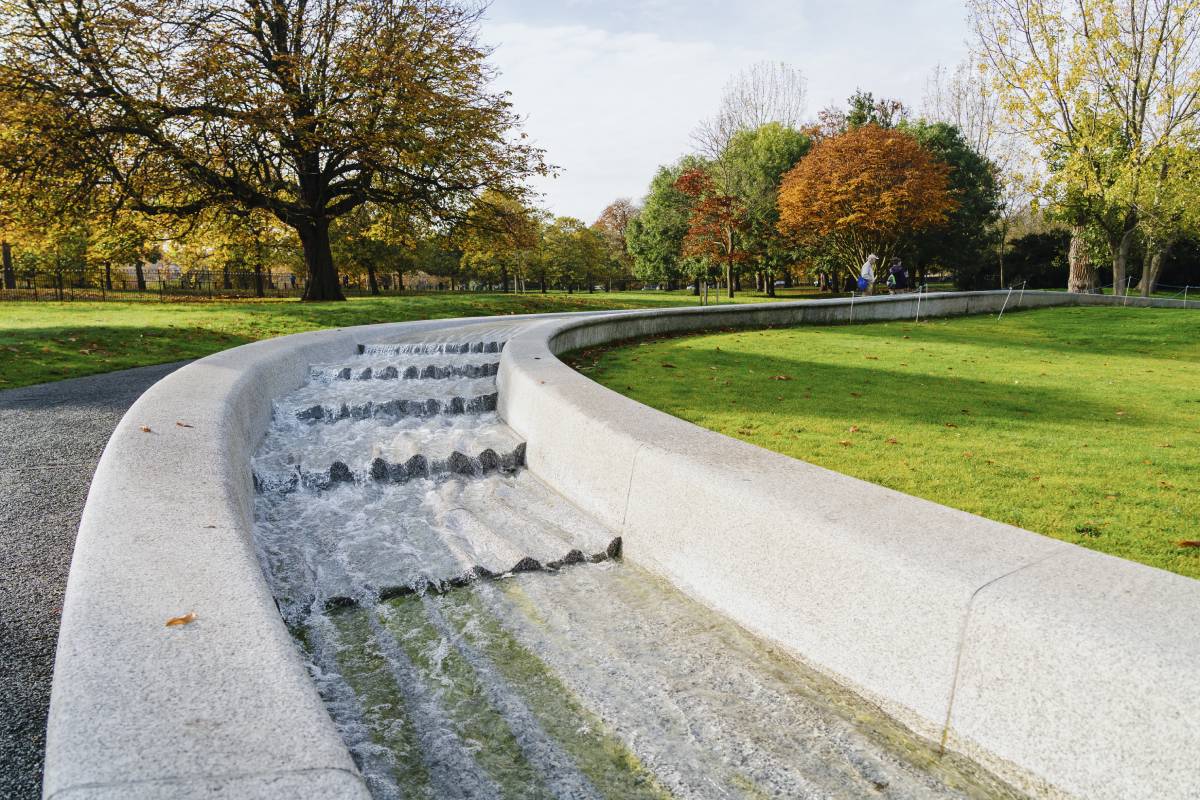
Stormwater may seem innocuous, just rainwater running off the streets, but its management is crucial for maintaining the health of our environment and communities. Every time it rains, stormwater picks up pollutants from various surfaces and carries them into our waterways, posing risks to water quality, habitats, and public safety.
Effective stormwater management practices are essential to mitigate these risks and ensure sustainable development. In this article, we’ll explore the importance of stormwater management and the various strategies employed to address its challenges.
More interesting article:
- How do you waterproof a concrete building? What is the cheapest method of waterproofing? What is the best waterproofing method?
- What Are the Signs That Your Gutters Need to Be Replaced? What Are the Pros and Cons of Gutters?
What is stormwater?
Stormwater is simply rainwater or melted snow that flows over surfaces like streets, parking lots, and rooftops. Unlike water from your tap or shower, stormwater isn’t treated before it flows into rivers, lakes, or oceans. As it travels, stormwater picks up all sorts of things like dirt, trash, oil, and chemicals. This mix of water and pollutants is called stormwater runoff.
Now, you might wonder, why is stormwater a big deal? Well, when it rains, stormwater runoff can cause a bunch of problems. For one, it can flood streets and neighbourhoods, leading to traffic jams and property damage. But it’s not just about flooding; stormwater runoff can also mess up our water quality. Imagine all the stuff it collects from the streets—cigarette butts, motor oil, and pet waste. When that ends up in our rivers and lakes, it can make them unsafe for swimming, fishing, and drinking.
So, what do we do about it? That’s where stormwater management comes in and we’re about to discuss it in the next section.

What is stormwater management? Is it important?
Imagine a rainy day. As rain falls, it doesn’t just disappear; it has to go somewhere. That’s where stormwater comes in. Stormwater is basically rainwater that runs off surfaces like roads, sidewalks, and rooftops. But here’s the thing: as it flows, stormwater picks up all sorts of stuff, like dirt, trash, and chemicals. This mix of water and pollutants is called stormwater runoff.
Now, why should we care about stormwater? Well, when there’s too much of it, it can cause all sorts of problems. Ever seen a flooded street after heavy rain? That’s because stormwater can overwhelm drainage systems and flood our neighbourhoods, leading to traffic jams and property damage.
But flooding isn’t the only issue. Think about all the gunk that stormwater collects as it flows over streets—oil from cars, litter, and even pet waste. When that ends up in our rivers and lakes, it can make them unsafe for swimming, fishing, and drinking. So, if we want clean water and safe communities, we need to manage stormwater properly.
Enter stormwater management. It’s like playing traffic cop for rainwater, directing it where it needs to go and making sure it doesn’t cause chaos along the way. Stormwater management involves a bunch of strategies and techniques to control runoff, reduce pollution, and protect our water resources.
One way to manage stormwater is by building things like retention ponds. These ponds collect stormwater and slowly release it over time, preventing floods downstream. Another technique is using permeable pavement, which lets water soak into the ground instead of running off into sewers. And let’s not forget about green infrastructure—things like rain gardens and vegetative swales that help absorb and filter stormwater naturally.
But stormwater management isn’t just about preventing floods and keeping water clean. It’s also about protecting wildlife habitats and preventing erosion. You see, when stormwater rushes over land, it can wash away soil and destroy habitats. By managing stormwater properly, we can help prevent erosion and protect the places where plants and animals live.

So, is stormwater management important? Absolutely, it is crucial for several reasons:
- Flood Control: Proper management helps reduce the risk of flooding by controlling the volume and velocity of stormwater runoff. This protects lives and property in urban and rural areas.
- Water Quality Protection: Stormwater can carry pollutants such as sediment, nutrients, heavy metals, and bacteria from various sources like roads, parking lots, and industrial sites. Effective stormwater management practices help prevent these pollutants from reaching water bodies, thus safeguarding water quality for drinking, recreation, and aquatic habitats.
- Erosion Prevention: Uncontrolled stormwater runoff can cause erosion, leading to the loss of soil and degradation of landscapes. Stormwater management techniques such as vegetative buffers, retention ponds, and erosion control measures help prevent erosion and maintain soil stability.
- Protection of Natural Habitats: Urbanization and land development can disrupt natural hydrological processes. Stormwater management seeks to mimic natural drainage patterns and protect ecosystems by minimizing the impacts of land development on aquatic habitats and wildlife.
- Compliance with Regulations: Many jurisdictions have regulations and permits in place to govern stormwater management, particularly for construction and industrial activities. Compliance with these regulations is essential to avoid fines, penalties, and legal liabilities.
Overall, stormwater management is critical for sustainable development, environmental protection, and public health and safety. By implementing effective management practices, communities can minimize the negative impacts of stormwater runoff and promote resilience in the face of increasingly frequent and intense precipitation events associated with climate change.

How many types of stormwater management?
Stormwater management is a vital aspect of urban and rural planning, aimed at controlling and mitigating the impacts of stormwater runoff on communities and the environment. As precipitation events become more frequent and intense due to climate change, effective stormwater management is essential for flood control, water quality protection, erosion prevention, and the preservation of natural habitats.
Types of Stormwater Management
- Green Infrastructure: Green infrastructure refers to natural or engineered systems that mimic the hydrological functions of natural landscapes. Examples include rain gardens, bioswales, green roofs, and permeable pavements. These features help absorb and infiltrate stormwater, reducing runoff volume and pollutant loads while providing additional benefits such as urban cooling, habitat creation, and aesthetic enhancements.
- Detention and Retention Basins: Detention and retention basins are constructed ponds or reservoirs designed to temporarily store stormwater runoff. Detention basins hold water for a short period to control peak flows and reduce downstream flooding, while retention basins permanently retain a portion of the runoff, allowing for gradual infiltration and groundwater recharge. These basins also help remove pollutants through settling and biological processes.
- Stormwater Filtration Systems: Filtration systems utilize various media such as sand, gravel, or proprietary filter media to remove pollutants from stormwater runoff. These systems can be installed as underground vaults, above-ground structures, or as part of green infrastructure practices. Filtration systems are effective at capturing sediments, nutrients, heavy metals, and hydrocarbons, improving water quality before discharge into receiving water bodies.
- Erosion Control Measures: Erosion control measures are designed to prevent soil erosion and sedimentation caused by stormwater runoff. Techniques include vegetative buffers, erosion control blankets, silt fences, and check dams. Vegetative buffers, such as riparian vegetation along streams and rivers, help stabilize soils, reduce erosion, and filter pollutants. Erosion control blankets and silt fences provide temporary protection during construction activities, preventing sediment runoff into nearby water bodies.
- Stormwater Harvesting: Stormwater harvesting involves capturing and storing rainwater for beneficial uses such as irrigation, landscape watering, and groundwater recharge. Harvested stormwater can be stored in cisterns, rain barrels, or underground tanks and used to supplement municipal water supplies or reduce demand for potable water sources. This practice conserves freshwater resources while reducing stormwater runoff volume and peak flows.
- Public Education and Outreach: Public education and outreach programs are essential components of stormwater management efforts. These initiatives raise awareness about the importance of proper stormwater management practices and encourage community involvement in pollution prevention and watershed stewardship. Educational campaigns may include workshops, seminars, school programs, and informational materials distributed through various channels.
Conclusion
stormwater management is not just about dealing with rainwater; it’s about safeguarding our environment, protecting public health, and promoting resilience in the face of changing climatic conditions. By implementing comprehensive stormwater management practices, communities can reduce flood risks, preserve water quality, prevent erosion, and maintain the integrity of natural habitats.
It requires collaboration among government agencies, private sectors, communities, and individuals to adopt sustainable practices and technologies that mitigate the impacts of stormwater runoff. As we continue to face environmental challenges, investing in effective stormwater management is not just an option; it’s a necessity for a more sustainable and resilient future.

